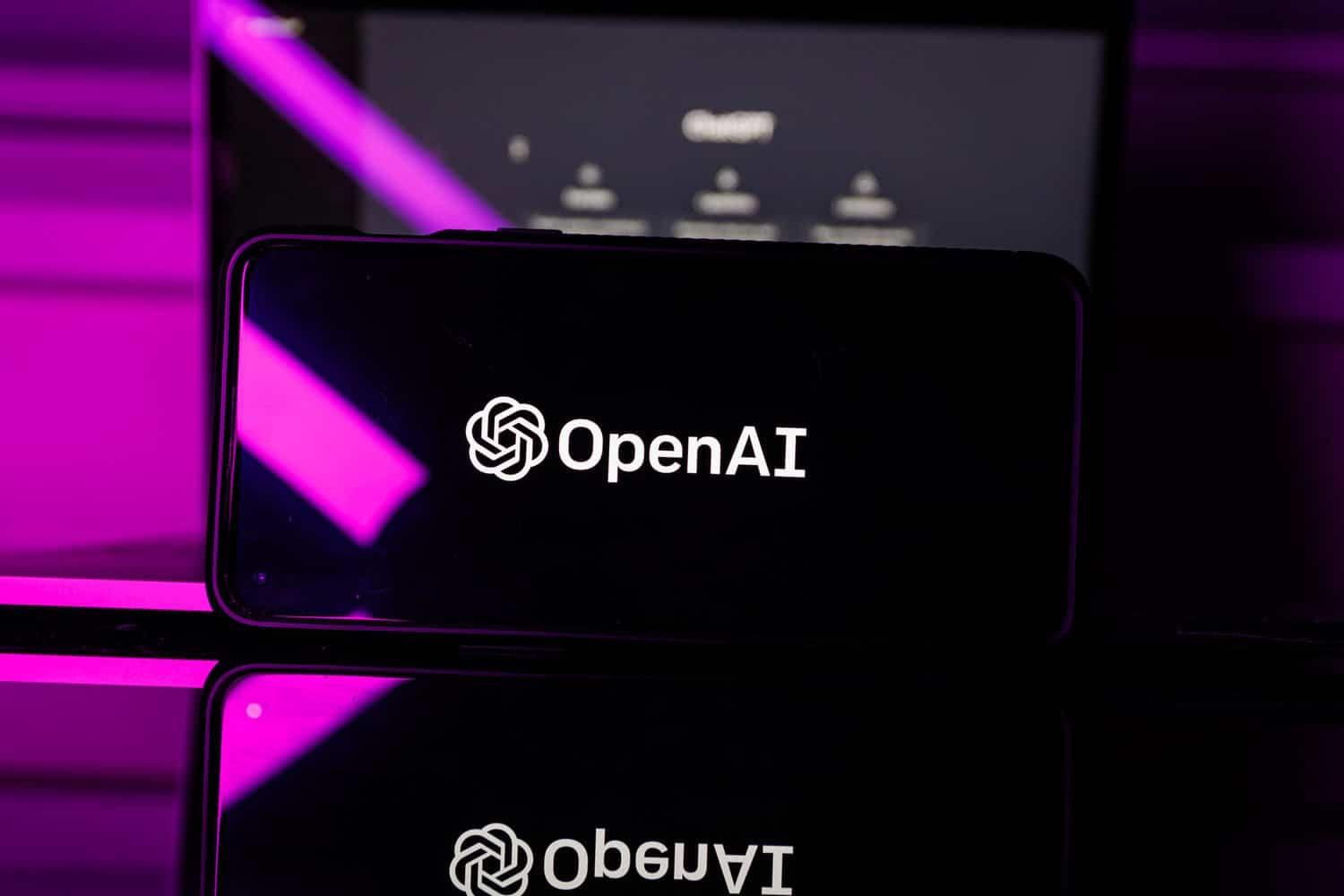
Microsoft announces general availability of Azure OpenAI Service and promises ChatGPT soon
AI services are more than a trend, they are a phenomenon, and every technology company wants to get in on the action. Microsoft is no exception; the company has just announced that its Azure OpenAI Service is now generally available, giving access to a far wider audience.
Microsoft is pushing Azure as "the best place to build AI workloads", and part of this involves harnessing the power of GPT-3-powered natural language. On the horizon is ChatGPT, which is described as "a fine-tuned version of GPT-3.5 that has been trained and runs inference on Azure AI infrastructure".

How artificial intelligence is changing healthcare [Q&A]
Artificial intelligence is having an impact on more and more areas of our lives. One of the areas where it has most potential is in healthcare, allowing professionals to make faster and better decisions, and applying innovative problem solving.
We spoke to Eric Landau, founder and CEO of Encord, to find out more about the benefits and challenges of using AI in this sector.

AI-generated texts could increase threat exposure
We reported last week on how ChatGPT could be used to offer hints on hacking websites. A new report released today by WithSecure highlights another potential use of AI to create harmful content.
Researchers used GPT-3 (Generative Pre-trained Transformer 3) -- language models that use machine learning to generate text -- to produce a variety of content deemed to be harmful.

Microsoft unveils VALL-E, an advanced text-to-speech AI that can speak in anyone's voice based on a 3-second sample
Microsoft has revealed details of its latest foray into the world of artificial intelligence. Billed as a "neural codec language model", VALL-E is an advanced AI-driven text-to-speech (TTS) system that the developers say can be trained to speak like anyone's based on just a three-second sample of their voice.
The result is an incredibly natural-sounding TTS system that takes an entirely different approach to existing systems. Able to convey tone and emotion better than ever, VALL-E sounds realistically human, but there are concerns that it could be used for audio deepfakes.

How ChatGPT could become a hacker's friend
The ChatGPT artificial intelligence bot has been causing a bit of a buzz lately thanks to its ability to answer questions, ask follow ups and learn from its mistakes.
However, the research team at Cybernews has discovered that ChatGPT could be used to provide hackers with step-by-step instructions on how to hack websites.

IBM streamlines its partner program
Over the past couple of years IBM has been undergoing something of a transformation. While its mainframe and mid-range hardware offerings remain at its core, Big Blue has been looking to capture a slice of the $1 trillion hybrid cloud and AI market and help clients automate, secure and modernize their businesses.
Partnerships have been an important element of this and today the company is changing how it supports partners with the launch of a single, integrated experience that offers access to IBM resources, incentives and tailored support to deepen their technical expertise and help speed time to market.

More machine IDs, attacks on providers and AI verification -- identity management predictions for 2023
Although the death of the password has been predicted for many years, older technology still clings on when it comes to verifying identities.
But that's changing, particularly with the massive growth in the numbers of machine IDs. Here is what some industry experts think we'll see from the identity world in 2023.

2023 predictions: Automation, right sizing cloud requirements, zero trust and the growing importance of AI observability
2022 was a year of extreme complexities. With the post-pandemic and Brexit fallout, cost of living rises and inflationary pressures, geo-political issues, ongoing climate crisis, supply chain shortages and growing cybersecurity and data security threats, it was undoubtably another unprecedented year.
In fact, ransomware set annual records again, with new ransomware strains emerging. Additionally, cloud adoption continued to grow, while the IT jobs market experienced significant skills shortages. As we look forward to the start of a new year, what trends are on the horizon in 2023 and what issues will organizations be grappling with?

Is AI the future of content marketing?
As technology advances, so does how we market our products and services. And with the rise of artificial intelligence (AI), businesses are beginning to explore how this innovative technology can be used to improve their marketing strategies.
AI offers several content marketing advantages, including personalizing content, targeting specific audiences, and optimizing campaigns. As more businesses adopt AI-powered content marketing, it is becoming increasingly clear that this technology is the future of content marketing. This article will explore the various ways in which AI is shaping the future of content marketing.

Remote monitoring, AI research and data at risk -- healthcare tech predictions for 2023
In addition to pressure from the COVID-19 pandemic and its aftermath, the healthcare sector has also been in the forefront of new technologies like smart devices and the use of AI.
The rate of change seems unlikely to slow down next year, so what can we expect to see in the healthcare tech sector in 2023?

Navigating the global technology skills gap with AI-moderated upskilling
Work trends have rapidly changed across the world, post-pandemic. How and where people choose to work now or in the future is and will be radically different from how it used to be a few years ago. Labor markets across all sectors have undergone drastic shifts in terms of talent requirements and demands, as businesses across the board increasingly accelerate the adoption of automation and emerging technologies.
This has resulted in a growing skills scarcity across the globe. As more technical and digital skills are required by workers in order to master emerging technologies, many organizations risk being left behind due to an undereducated and underprepared workforce. Businesses need to take the required steps now towards ensuring that their workforce, both present and future, has the training and digital skills needed to thrive in the working environment set to emerge over the next decade.

Modernized supply chains, resilience and accessibility -- AI predictions for 2023
It's the time of year when people start to look ahead to the next one and offer predictions for what might lie ahead. For the past couple of years this has rather been hijacked by events including COVID, the Ukraine conflict and consequent economic disruption.
This hasn't stopped people in the tech world making predictions though, in fact we've received more this year than ever. So in the first of a series of roundups let's take a look at what might lie ahead for AI in 2023.

AI-powered gardening app wins IBM Call for Code
This year's annual Call for Code Global Challenge, backed by IBM and the Linux Foundation, invited innovators across the world to help accelerate sustainability and combat climate change with open source-powered technology.
It's been won by GardenMate for creating an app that uses the IBM Watson AI platform to connect gardeners with excess produce to people in need.

We wanted to know what features Windows 12 might have to offer, so we asked an AI
Windows 12 will offer a number of improvements that will make it better than its predecessor, Windows 11. One of the biggest advantages of Windows 12 is that it will offer improved security. Microsoft is introducing multiple new features to better protect user data, such as a new secure kernel, a secure boot process, and a new sandbox security model.
In addition, Windows 12 will offer improved performance, with better memory management and faster start-up times. The new version of Windows will also provide better support for multi-core processors, and it will introduce new graphics APIs such as DirectX 12 and Vulkan, which will provide improved performance in gaming and multimedia applications.

AI and metaverse technologies boost training and streamline onboarding for employees
We live in a world where businesses constantly reinvent themselves to remain competitive. Automation and digitization goals feature in well over half of all today’s businesses’ long-term corporate strategies, according to PwC's most recent annual Global CEO Survey. Which is why artificial intelligence (AI) and virtual worlds or 'metaverse' related technologies and tools have risen to prominence, particularly in relation to improving on-the-job training and upskilling new talent.
In 2022, many businesses are now starting to benefit from the application of AI and metaverse technologies in providing streamlined training and onboarding for employees. Combining AI and metaverse technologies affords companies an incredible new opportunity to train and equip people with the necessary skills to navigate the future of work.
